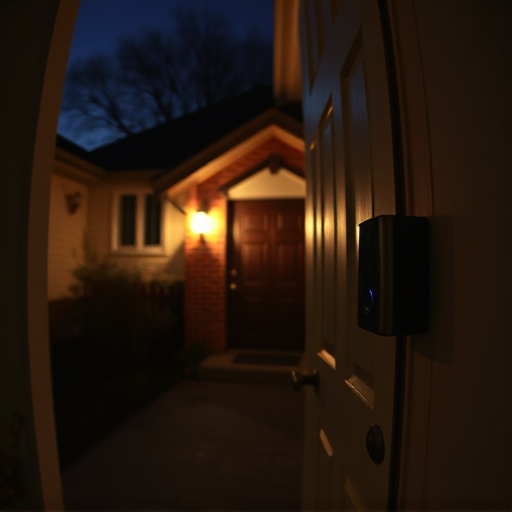Grandparents in Oregon seeking access or custody of their grandchildren must follow a structured court process, beginning with understanding relevant laws (ORS 109.053). This involves filing a petition, attending hearings to prove fitness and positive impact, and navigating legal procedures diligently. Essential steps include document preparation, service of the petition, and effective communication during hearings. Post-decision, both parties should focus on implementing the court's order for successful grandparent-grandchild connections while prioritizing the child's well-being.
In Oregon, grandparents seeking time with their grandchildren navigate a specific court process to ensure their rights are recognized. Understanding the steps involved is crucial for a successful outcome. This comprehensive guide delves into every phase of the Oregon court process for grandparents, from understanding their legal rights to navigating post-decision actions. By following a step-by-step approach, you can effectively initiate, file, and manage your case, ultimately fostering meaningful connections with your grandchildren.
- Understanding Grandparent Rights in Oregon
- Initiating the Legal Process: Who Can File?
- Filing and Serving Petitions: A Step-by-Step Guide
- Court Hearings: What to Expect and Preparing Your Case
- Post-Hearing Decisions and Appeals
- Navigating Post-Decision Actions: Ensuring Grandparent Time
Understanding Grandparent Rights in Oregon

In Oregon, grandparent rights are recognized and protected by law, offering a clear framework for grandparents seeking access to their grandchildren. The state’s court process for grandparents involves a series of steps designed to ensure fairness and the best interests of the child. Understanding this legal process is crucial for grandparents aiming to navigate the Oregon court system effectively.
The first step is to familiarize oneself with the relevant laws and regulations, which can be found in Oregon Revised Statutes (ORS). ORS 109.053 outlines the circumstances under which a grandparent may petition the court for visitation or custody rights. These include situations where parents are unmarried, deceased, or unable to care for the child due to various reasons. Once the legal basis is established, grandparents can initiate the court process by filing a petition, followed by a hearing where they must demonstrate their fitness and the benefits of their involvement in the child’s life.
Initiating the Legal Process: Who Can File?

In Oregon, the court process for grandparents seeking to establish or maintain their rights involves several steps. The first step in this legal process is understanding who can initiate it. Generally, grandparents can file a petition in the appropriate Oregon court to seek visitation rights or custody of their grandchildren if they meet specific criteria. This includes situations where the parents are unable or unwilling to provide care for the child, and the grandparent can offer a stable and loving environment.
To initiate the legal process, grandparents must gather essential documents and evidence supporting their case, such as medical records, proof of relationship, and affidavits from witnesses who can attest to the grandparent’s ability to provide a nurturing home. Once prepared, they file a petition with the court, which triggers an official investigation and potential court hearings to determine the best interests of the child and grant or deny grandparent rights accordingly.
Filing and Serving Petitions: A Step-by-Step Guide

When pursuing grandparent’s rights in Oregon, a clear understanding and navigation of the court process is essential. The initial step involves filing a Petition for Grandparent Time or Guardianship, which should be done at the appropriate county circuit court. This petition outlines your request for visitation or custody and includes necessary documentation, such as proof of relationship to the child. Once filed, the court will assign a case number and notify all parties involved.
The next crucial step is serving the petition on the child’s legal guardian or parents. This can be done through a process server or by following Oregon’s rules for service of process, ensuring that all documents are properly delivered. After service, you’ll need to file proof of service with the court, demonstrating that the petition has been served upon the relevant parties. These meticulous steps lay the foundation for your grandparent rights case in Oregon, setting the stage for subsequent hearings and potential adjustments to the child’s living arrangements.
Court Hearings: What to Expect and Preparing Your Case

When navigating the Oregon court process for grandparent rights, understanding what to expect during court hearings is crucial. These proceedings can be intricate and often involve complex legal arguments. Grandparents should prepare meticulously by gathering relevant documents, such as birth certificates, marriage licenses, and any evidence supporting their case. They must also be ready to articulate their reasons for seeking or maintaining custody, clearly outlining the benefits of their involvement in the child’s life.
During court hearings, grandparent rights advocates recommend remaining calm and composed, presenting a respectful demeanor, and actively participating in the process. It is beneficial to arrive early, ensuring ample time to familiarize yourself with the courtroom procedures. Additionally, clear communication with your legal representative beforehand can help ensure your case is presented effectively, increasing the chances of a favorable outcome in the Oregon court process for grandparent rights.
Post-Hearing Decisions and Appeals

After the hearing, the judge will issue a decision based on the evidence and arguments presented by both parties. This decision may include various outcomes related to grandparent rights, such as granting or denying visitation, establishing specific visitation schedules, or determining custody arrangements if applicable. The court’s goal is to act in the best interest of the child while also considering the rights and relationship between grandparents and their grandchildren.
If either party is dissatisfied with the court’s decision, they have the right to appeal. Navigating the appeals process in Oregon requires a thorough understanding of state laws and court procedures. Legal representation may be sought to guide through this step, ensuring that all necessary documents are filed within the specified time frames. Appeals can lead to further review by higher courts, potentially resulting in a different outcome or clarification on legal matters related to grandparent rights in the Oregon court process.
Navigating Post-Decision Actions: Ensuring Grandparent Time

After a decision has been made in an Oregon court regarding grandparent rights, it’s crucial to understand the subsequent steps and actions available to both grandparents and parents alike. This period is essential for establishing and maintaining meaningful connections between grandparents and their grandchildren. One of the primary focuses post-decision should be on ensuring regular and consistent time with the grandchild, as allowed by the court order.
Navigating this part of the process requires careful planning and communication. Grandparents should work collaboratively with the child’s parents to create a schedule that accommodates everyone’s needs and respects the court’s decision. This might involve scheduling visits, holidays, or special occasions, ensuring grandparent-grandchild bonding time while also considering the child’s overall well-being and stability. Understanding the legal process in Oregon is vital to ensuring these post-decision actions are carried out smoothly and in compliance with the law.














